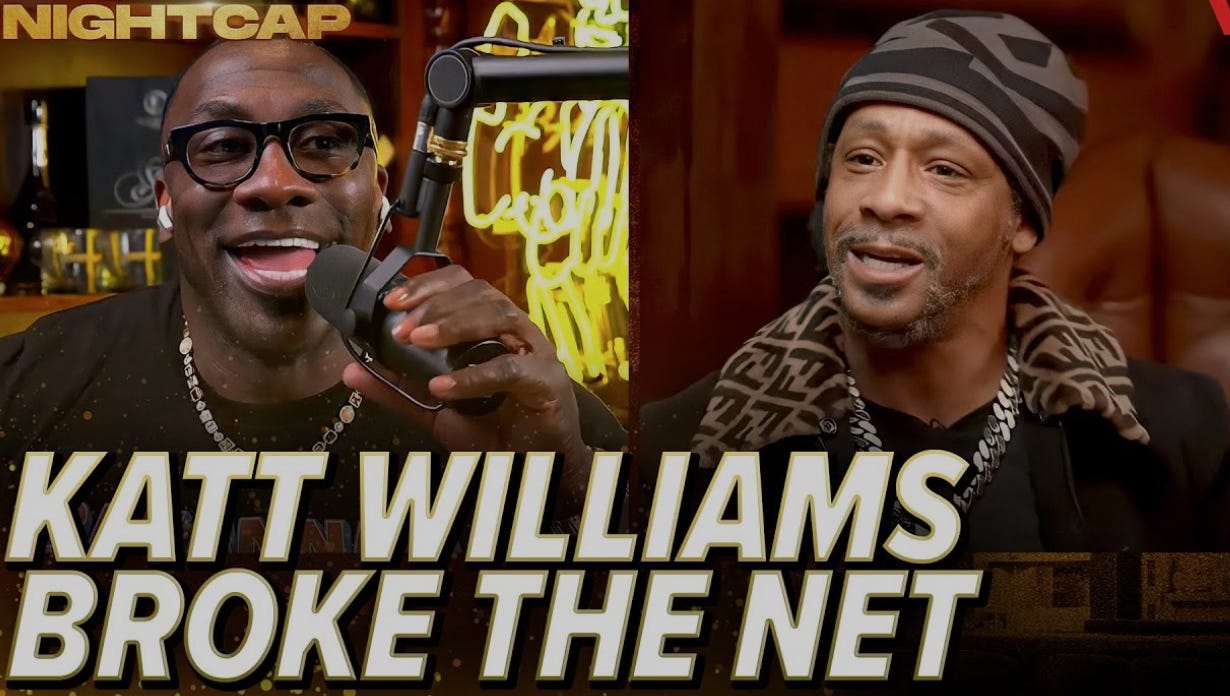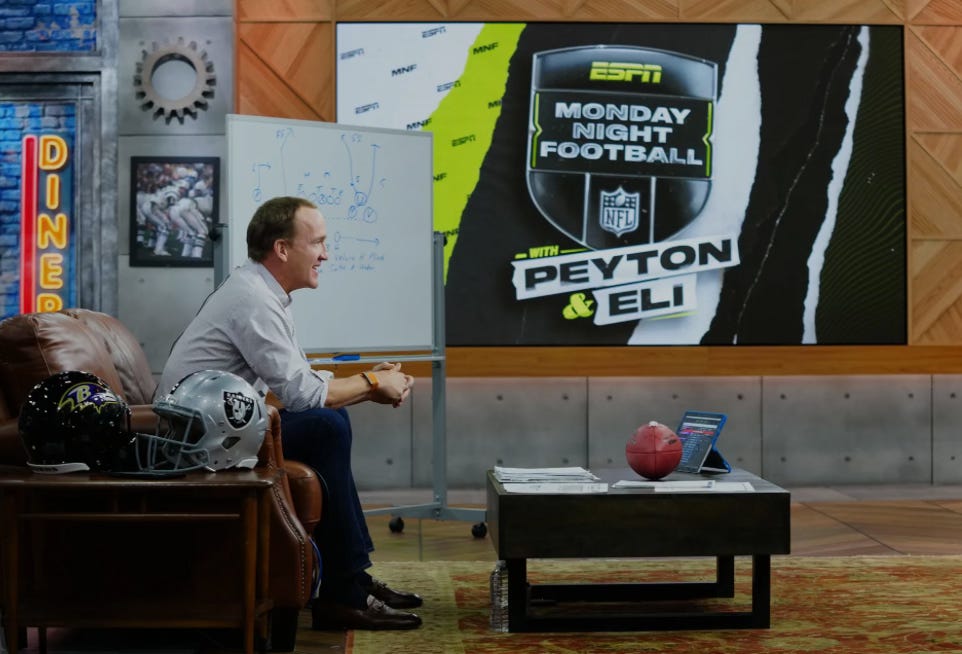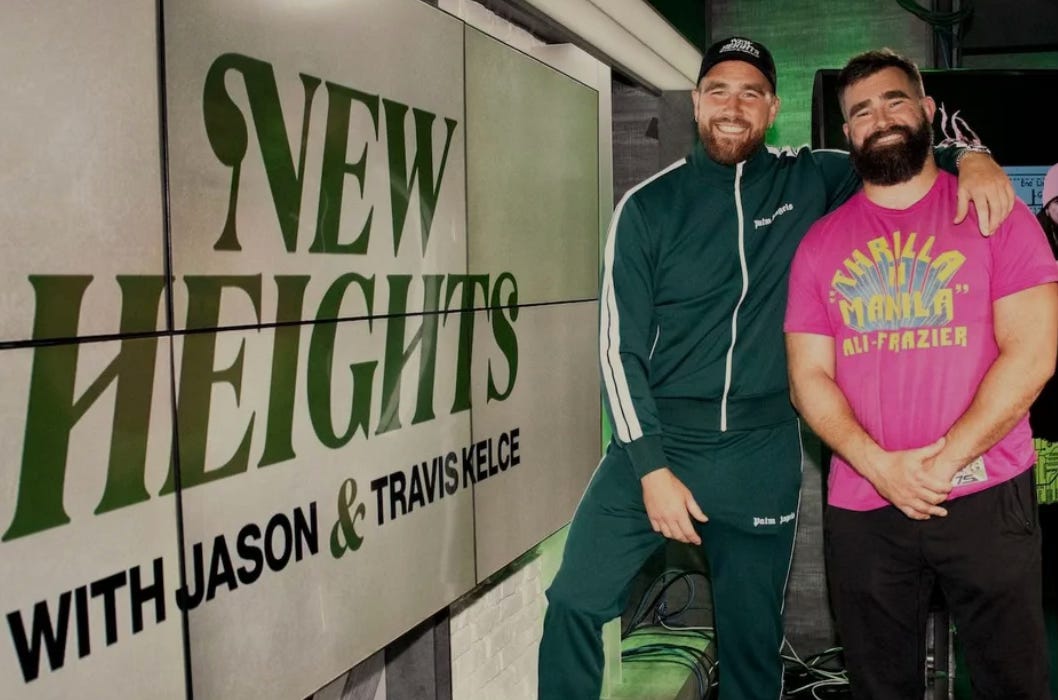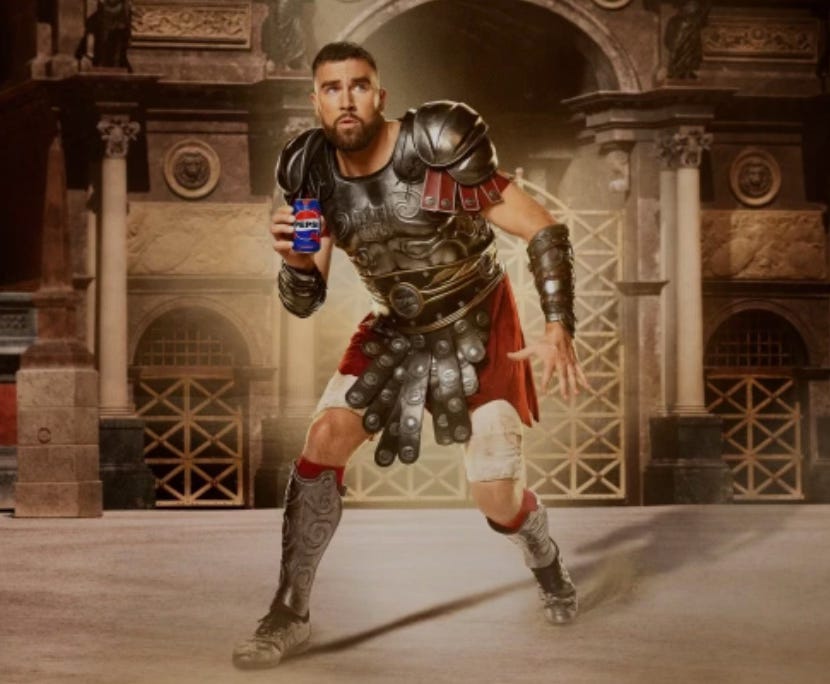Athletes as Media Moguls: The Evolution of Sports Content in the Digital Age
How Athlete-Driven Media Companies Are Reshaping the Industry and Engaging Fans and Brands Like Never Before
In today’s sports landscape, athletes are looking to diversify and amplify their voices away from the field or court. This article will breakdown some of the reasons why athletes with some star power are creating media companies, taking control of their narrative and cashing in at the same time.
In today’s game, the players themselves are becoming more and more popular and with the help of social media and their lives away from the game, athletes have become larger than life brands making their fans want to engage with them more. For instance, look at a guy like Shannon Sharpe. He’s a hall of fame football player, one of the greatest tight ends ever, a three time Super Bowl champion and today may be best known for having a podcast, “Club Shay Shay”as well as “Night Cap”.
His rise to prominence in the podcast space came from an interview with Katt Williams that “broke the internet” due to some of the content that came from that conversation. It certainly raised the profile of the show but more importantly that viral interview grew the Shannon Sharpe profile which is even more valuable now than anytime during his playing career. To date that interview has 74 million views on YouTube and according to Sharpe, he made more money from that video than any one year of playing in the National Football League. With some luck, that is the power of having your own platform and the rewards for high profile athletes and their media companies are climbing into the nine figures. This is one example of how current and former athletes are shifting from traditional advertisements and endorsements to controlling their narratives on their terms and creating immense value in the process.
Shannon Sharpe is not the only notable athlete to venture down the media company path. Another big name, Peyton Manning, retired and didn’t have an idea of what he wanted to do. From what I understand, he didn't want to coach or take a role in a team’s front office.
However, a guy that comes from the first family of football, he couldn’t stay away from the game forever. Later in his on field career, Manning had been a pitch man for Papa John’s, Buick, and off the field there are a myriad of other endorsements which felt natural. Long story short, an agent at WME in Los Angeles, Josh Pyatt, who co-runs the WME Sports division, flew out to Denver and pitch Manning an idea. That idea was to have a production company that he could have as much involvement as he wanted. Peyton loved that idea and could control how much control he had in the company. Knowing the player Manning was, his transition into media mogul would be one that he put his every effort into. The production company became a smashing success and grew faster than anybody could imagine. There have been different iterations of the flagship “Peyton’s Places”, documentaries such as Quarterback and Receiver, to producing, creating, and starring in branded content for well known brands such as Bud Light and Nationwide. Omaha has multiple productions in the works including a documentary about the history of the Green Bay Packers. The company in its short existence is valued at more than $400 million dollars. Pretty impressive!
Even before Manning came along with Omaha Productions, LeBron James had put together a prolific media endeavor known as The Springhill Company. LeBron, with his lifelong friend and business partner, Maverick Carter have created a media behemoth starting with their flagship show called “The Shop”. TSC has had multiple productions under their umbrella that span from straight up entertainment to branded content that they create through their brand arm, The Robot Company. This is another example of athletes wanting to control their brand narrative while also leveraging their celebrity to grow and influence brands that want to be culturally relevant. The other part of their company, is the banner Uninterrupted, this part of their company allows and helps other athletes to tell their stories without interruption, hence the name. These types of media companies led by athletes are seeing significant interest from different private equity firms looking to bolster their media investments. Redbird Capital has poured money into TSC raising their value to more than $700 million dollars and growing.
The list of athletes with their own media companies is ever growing. Derek Jeter has the Players’ Tribune, which is another outlet for athletes to tell their stories and connect with more fans. Naomi Osaka, has started her own media company called, Hana Kuma which was just signed to major talent agency, CAA. Tom Brady has somehow been able to find the time to do this as well and created Shadow Lion. He and his production company already have multiple projects in the works from scripted content to branded content as well. I have to imagine after earning a $100 million dollar offer from Amazon Wondery, the New Heights Podcast hosted by Jason and Travis Kelce will at some point be turned into a media company.
Both brothers for different but obvious reasons can find massive success in this space. After retiring, Jason Kelce has filled his free time with several commercial spots such as a Buffalo Wild Wings commercial and alongside of his wife promoting NFL Sunday Ticket on YouTube TV. His brother, Travis Kelce may be a more natural fit in the entertainment game certainly after his performance in the new and updated version of Pepsi’s Gladiator commercial. Oh and he’s Taylor Swift’s arm candy so that has to count for something right? Together the brothers are stars personified and could certainly carve out a piece of the athlete media landscape.
To conclude, star athletes have never been more popular than they are right now thanks to their sports growing on a global scale, social media, and fans today, wanting to connect with them more and more. Having an athlete led media company can allow these athletes to show off more of who they are, enjoy their celebrity, and have second career success outside of the limited spots that linear tv and streaming services provides in the booth. Having a media company is a great way for an athlete to not control their own narrative but create immense value for themselves in another career. I am sure I left some companies out of this article. Which may be a good thing because the more athlete led media groups the better! Shout to the great Pat McAfee and his crew who have taken the sports, entertainment, and media worlds and flipped them on their heads. it Those guys are awesome!








